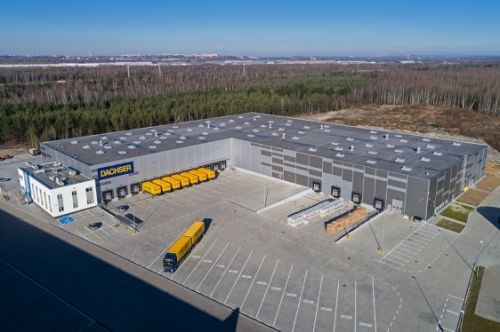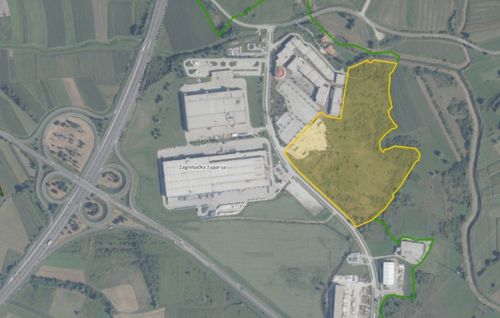No risk, no fun
Finding a good general contractor in a boom construction period is no joke,
in fact it is often impossible. So it might be worthwhile to employ a company specializing in construction management
Construction management is a practical alternative especially for investors planning large projects. The method differs from that of a general contractor mainly because
a single company does not have to be chosen to implement a venture for a pre-defined sum set by tender. Artur Dziubak, development manager for Bovis Lend Lease, provides us with some more details: “In construction management the investment is divided into parcels – with logically defined scopes for design and executive work. These parcels could be earthworks, foundations, metal structures, elevations and systems inside
a building. Separate documentation is drawn up for each parcel and a tender is organized in which specialist executive companies are chosen. An enormously positive feature of construction management is that it allows construction to begin before the architectural work is complete.”
According to Henryk Liszka, Hochtief Polska’s president: “Although the prices of building materials and labour continue to rise at a rapid rate, most investors prefer employing a general contractor operating within a fixed budget. It is the opinion of investors that since they have
a guaranteed maximum price, they can be sure that a project will be completed without additional costs. But practice proves a different state of affairs. Those who decided on the construction management method were delighted, although it proves its worth mostly in large investments such as the Rondo 1 and Metropolitan office buildings we developed in Warsaw and the Lipowy Office Park.”
What happens when a general contractor flops
No investor in their right mind wants to find themselves with a general contractor unable to meet a binding contract. This nightmare was made real in the case of Triton Development, property developer of the Warsaw Triton Park estate in the triangle of ul. Lutnicza, ul. Harfowa and ul. Górczewska. Mateusz Burnatowicz, sales and marketing director of Triton Development describes what happened: “The general contractor of our investments at a certain moment stopped work. After several reminders we demanded he leave the building site since we did not want any further delays to the work. The issue will probably end up in a court of law. We are presently wondering how we can continue construction. We still don’t know whether we should choose another general contractor or, perhaps, carry out the project under the construction management system. Mace Polska is the company which will advise on the system which should be used to finish the project.”
Triton Development’s officials are sure there will be a happy ending to the whole st
ory: an investment 39 pct pre-sold is one that you have to continue.
No u-turns
Some construction specialists are in no doubt that a project which was managed by
a general contractor should not be continued in the construction management system. Artur Dziubak of Bovis Lend Lease claims that: “Executing a project under the construction management system is an alternative to having
a general contractor, especially at the beginning of the investment road when the timetable is still being established. But I cannot imagine a general contractor being substituted, especially when an investment has begun, without
a risk of not meeting the deadline or exceeding the budget.”
Triton Development was
not the only company with a general contractor problem. Artur Burak, press spokesman of the State Airports Enterprise (PPL) complains that: “We are having to cope with this with the new Warsaw Okęcie terminal. Could construction management prove to be a method which might insulate the airport project from the problems it has been experiencing? The reply in
this case would, obviously, be entirely theoretical. The previous PPL board chose the ‘design and build’ method according to the FIDIC ‘yellow book’ 1999 standard (lump-sum
formula), even though the project could have been implemented in the construction management system.” PPL’s board have been extremely irritated by the situation and are currently considering thinking of finishing the investment under the construction management system.
Will it be more profitable?
It is impossible to state unequivocally whether the general contractor system is worse and more expensive than construction management. So what criteria should be used for going down this route? The most important is the size of the project – construction management is normally employed for larger projects, costing around EUR 15 mln to EUR 20 mln. However, the cost of the investment proper by this method is similar to that of a using general contractor,
Mateusz Burnatowicz of Triton Development is adamant that: “The question which must be answered is: which method is the safest? Perhaps it is the one under which the entire project is put into the hands of a general contractor - but should problems arise with completing the project, then we have our backs to the wall. Or perhaps it is the one under which we can choose when and with whom we work? When we started out with this investment, we decided to employ a general contractor, since the present boom on the construction market had still not peaked. However, the lack of sufficient staff and the large number of orders generate problems with finishing work by pre-set dates. But should smaller subcontracting companies be employed, of which there are hundreds on the market, then a greater opportunity exists to find a new construction team -should problems occur with the previous one.” n
Zuzanna Wiak





















































